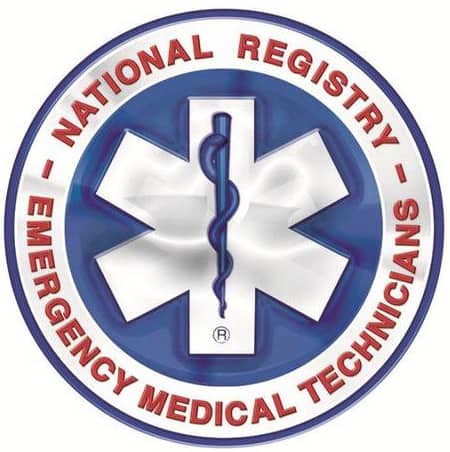
When two or more states work out an agreement and sign that agreement into law, it’s called a compact. Every state has about two dozen of these compacts covering everything from education, taxes, and mental health, to rivers and parks. Compacts are the reason the driver’s license you received in your home state is valid in every state. However, your EMR, EMT, or Paramedic license does not currently work that way.
In October 2012 the Department of Homeland Security Office of Health Affairs (DHS/OHA) and the National Association of State Emergency Medical Services Officials (NASEMSO) began work to design a new interstate compact that would allow for a multi-state privilege to practice for EMS personnel. The compact would provide better public service because EMS personnel could work across state lines and state EMS offices could share licensure information, and communicate and coordinate more effectively.
A National Advisory Panel (NAP) and Drafting Team were commissioned. The NAP looked into the issues surrounding current state licensure and proposed ways in which the compact could work. The Drafting Team turned those suggestions into legislation. The entire project took only a year and a half to complete, with a draft being formally submitted to the DHA/OHA in April 2014.
The legislation was titled REPLICA: Recognition of EMS Personnel Licensure Interstate CompAct. In order to be activated, REPLICA requires that ten states join the compact. Currently seven states, Colorado, Texas, Virginia, Idaho, Utah, Kansas, and Tennessee have signed REPLICA into law, five of those states joined in 2016 alone.
Once the tenth state enacts REPLICA the compact will begin and all states in the compact will have five years to comply with criminal background checks. After the five years is up, all states that join must comply from day one. Joining the compact, once enacted, means that the state recognizes the privilege to practice of EMS personnel in remote states.
This brings about many questions for EMS personnel. Specifically, how a provider’s scope of practice changes within the framework of REPLICA. The short answer is that it will not change. As it currently stands, any provider is able to continue working beyond the national scope of practice when authorized by their home state, and can also operate in that extended scope of practice in a remote state until an appropriate authority in the remote states says otherwise. This means that EMS personnel will not need to change the way they provide care if and when their home state enacts REPLICA. It will also make it unnecessary to apply for reciprocity within the network of states.
The one caveat to this rule is REPLICA will only recognize licensed EMTs who are at least 18 years of age. States that do not follow the NREMT guidelines for licensure can join the compact, but the EMTs who are under 18 and licensed will not be able to practice outside of their home state until they come of age. This falls under the privilege to practice outlined in REPLICA.
The licenses of EMS providers will still be under the authority of the home state. In short, only your home state can revoke your license. However, other states in the compact can challenge your privilege to practice based on laws broken in the remote state or in order to protect the wellbeing of its citizens.
In order to join REPLICA, each state must introduce it as new legislation. There cannot be any major changes made before it is signed into law by the state’s governor. It is a waiting game to find out how effective this new compact will be at achieving its goals. Even once ten states join REPLICA, it will take many years and more states joining to discover the faults or benefits.
For example, if your home state enacts REPLICA but shares no borders with other REPLICA states, then it could be tough to judge its effectiveness. The true test will come when entire regions have joined the compact, hopefully improving both emergency care by personnel and coordination between state EMS agencies.
In October 2012 the Department of Homeland Security Office of Health Affairs (DHS/OHA) and the National Association of State Emergency Medical Services Officials (NASEMSO) began work to design a new interstate compact that would allow for a multi-state privilege to practice for EMS personnel. The compact would provide better public service because EMS personnel could work across state lines and state EMS offices could share licensure information, and communicate and coordinate more effectively.
A National Advisory Panel (NAP) and Drafting Team were commissioned. The NAP looked into the issues surrounding current state licensure and proposed ways in which the compact could work. The Drafting Team turned those suggestions into legislation. The entire project took only a year and a half to complete, with a draft being formally submitted to the DHA/OHA in April 2014.
The legislation was titled REPLICA: Recognition of EMS Personnel Licensure Interstate CompAct. In order to be activated, REPLICA requires that ten states join the compact. Currently seven states, Colorado, Texas, Virginia, Idaho, Utah, Kansas, and Tennessee have signed REPLICA into law, five of those states joined in 2016 alone.
Once the tenth state enacts REPLICA the compact will begin and all states in the compact will have five years to comply with criminal background checks. After the five years is up, all states that join must comply from day one. Joining the compact, once enacted, means that the state recognizes the privilege to practice of EMS personnel in remote states.
This brings about many questions for EMS personnel. Specifically, how a provider’s scope of practice changes within the framework of REPLICA. The short answer is that it will not change. As it currently stands, any provider is able to continue working beyond the national scope of practice when authorized by their home state, and can also operate in that extended scope of practice in a remote state until an appropriate authority in the remote states says otherwise. This means that EMS personnel will not need to change the way they provide care if and when their home state enacts REPLICA. It will also make it unnecessary to apply for reciprocity within the network of states.
The one caveat to this rule is REPLICA will only recognize licensed EMTs who are at least 18 years of age. States that do not follow the NREMT guidelines for licensure can join the compact, but the EMTs who are under 18 and licensed will not be able to practice outside of their home state until they come of age. This falls under the privilege to practice outlined in REPLICA.
The licenses of EMS providers will still be under the authority of the home state. In short, only your home state can revoke your license. However, other states in the compact can challenge your privilege to practice based on laws broken in the remote state or in order to protect the wellbeing of its citizens.
In order to join REPLICA, each state must introduce it as new legislation. There cannot be any major changes made before it is signed into law by the state’s governor. It is a waiting game to find out how effective this new compact will be at achieving its goals. Even once ten states join REPLICA, it will take many years and more states joining to discover the faults or benefits.
For example, if your home state enacts REPLICA but shares no borders with other REPLICA states, then it could be tough to judge its effectiveness. The true test will come when entire regions have joined the compact, hopefully improving both emergency care by personnel and coordination between state EMS agencies.
Sources:
Recognition of EMS Personnel Licensure Interstate CompAct. NREMT. https://www.nremt.org/rwd/public/document/replica
National Center for Interstate Compacts. https://apps.csg.org/ncic/State.aspx?search=1&id=23
National Association of State EMS Officials. https://www.nasemso.org/Projects/InterstateCompacts/
REPLICA. September 2014. https://www.akchap.org/resources/EMS_Information/RECOGNITION_OF_EMERGENCY_MEDICAL_SERVICES_PERSONNEL_LICENSURE_INTERSTATE_COMPACT.pdf
National Center for Interstate Compacts. https://apps.csg.org/ncic/State.aspx?search=1&id=23
National Association of State EMS Officials. https://www.nasemso.org/Projects/InterstateCompacts/
REPLICA. September 2014. https://www.akchap.org/resources/EMS_Information/RECOGNITION_OF_EMERGENCY_MEDICAL_SERVICES_PERSONNEL_LICENSURE_INTERSTATE_COMPACT.pdf
By: James Ewen


